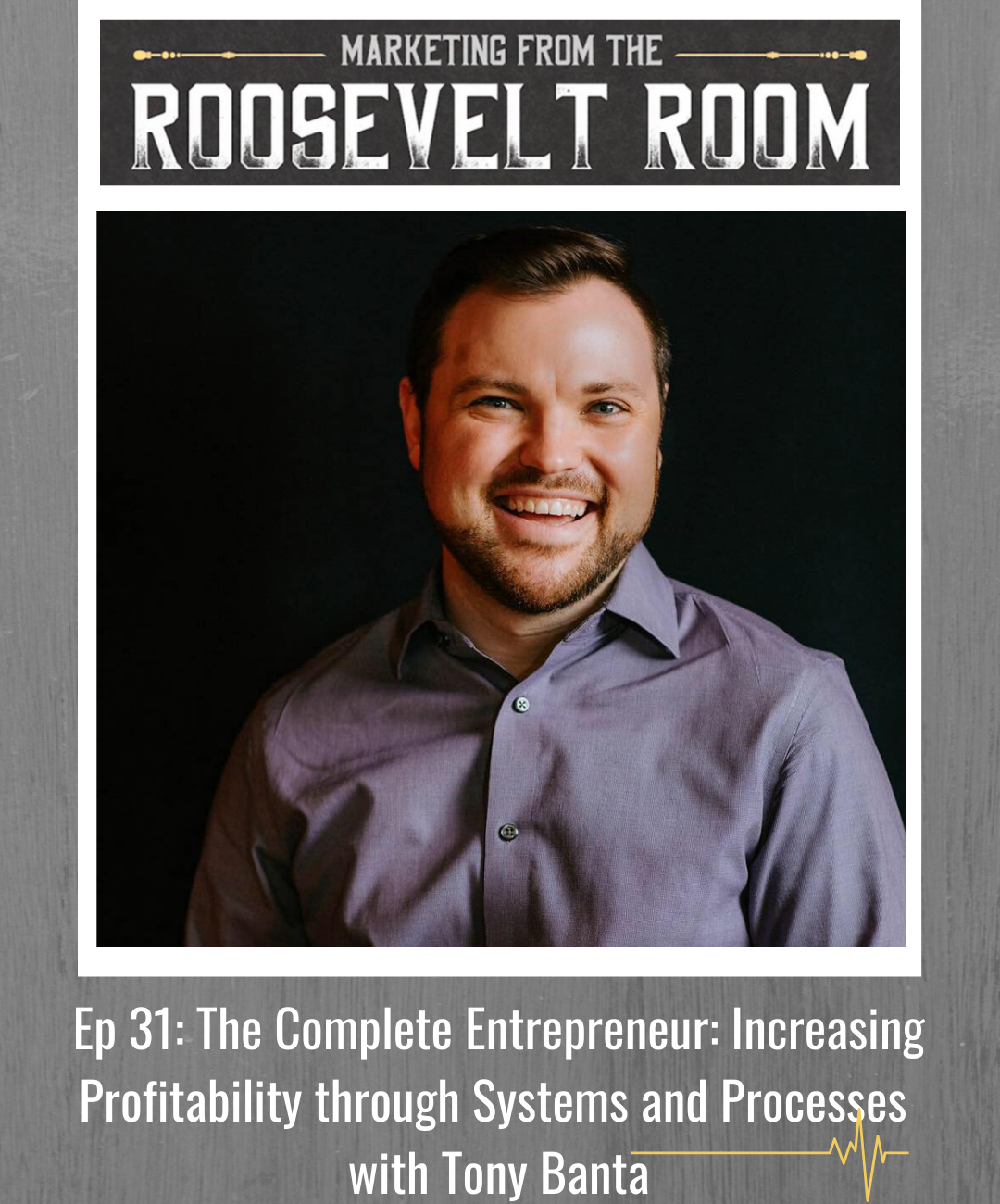
Life Hacks for Increased Productivity from a Nobel Prize Winner
“It’s easy to get so caught up in the big audacious goals of life that we neglect the important things right in front of us.” – Kyle Willis (3:30-3:38)
Kyle Willis
Marketing from the Roosevelt Room
Theodore Roosevelt knew how to manage his time and activities to accomplish greatness. When you look closely at his life, you discover gold nuggets of wisdom that can help you perform better in your business and personal relationships.
Roosevelt said, “We cannot do great deeds unless we’re willing to do the small things that make up the sum of greatness.” This core belief made him productive in all areas of life. For entrepreneurs, it’s easy to get lost in the big picture view of what we want to accomplish with our work. But in the process, we overlook the more important things that need our attention each day.
“If you have so many unplanned things happening in your day that you can’t structure your time, then you have other issues to worry about.” – Kyle Willis (8:50-8:58)
Anyone running a business knows how overwhelming it can be to reply to hundreds of phone calls and emails each day. Entrepreneurs fear they’ll lose clients if they don’t respond right away. So they spend time and energy addressing the needs of their clients while their own needs fall by the wayside. Their personal relationships suffer and they miss out on the chance to be present with those they love and do the other things that are truly great. The “small things that make up the sum of greatness” never quite get done.
“What are the small things in your business or personal life that you’ve been neglecting that must be completed in order for great deeds to come your way?” – Kyle Willis (5:12-5:25)
While a student at Harvard, Theodore Roosevelt carried a full course load while pursuing extracurricular activities like boxing, wrestling, dance, poetry readings, and time spent in nature. His primary activities would fall between 8:30 a.m. and 4:30 p.m. Any gaps during that time were protected from distractions. Roosevelt would seclude himself from others and only take the books required for a class while devoting no more than a quarter of his day to studying.
Roosevelt knew that if he didn’t leverage the time gaps in his schedule, he’d have no way of making them up. After meeting all of his obligations within his scheduled time frame, he would allow himself to do all the other activities he enjoyed. Although it might seem like an extreme approach, it proved to be effective. He developed a system to get more done in the same 24 hours that all individuals have.
How can you take Roosevelt’s example and apply it to your own life?
The first step is to sit down and map out your activities for the day. Create high-leverage windows of time where you eliminate distractions. Turn off your phone, email, and all the other things that pull your attention away from what really needs to get done. This lets you focus on one or two big projects instead of trying to manage too many things at once. Planning your activities allows you to look back each day and see what you’ve accomplished. You can also effectively plan your tasks for the next day. Your daily schedule is yours to control, and it’s up to you to protect your time.
Learning from Theodore Roosevelt and other high-performing leaders helps you achieve more in less time so you can be present with others when it matters most. You can never achieve perfection with your time management. But creating an environment that lets you focus on the small things paves a path to greater deeds.
Time is the only asset you have that you can’t make more of. Spend it wisely.
How to Get Involved
